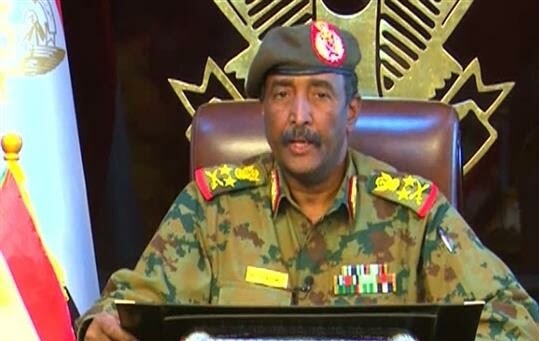
Khartoum, Sudan | AFP | Sudan’s new army rulers on Monday ordered protesters to dismantle their barricades on roads leading to the military headquarters as tensions grew after talks between the two sides broke down.
The demonstrators have accused the ruling military council of being little different from veteran leader Omar al-Bashir who was topped by the army on April 11 following months of street protests.
The demand to reopen roads came a day after rally leaders suspended talks with the 10-member council about their main demand to transfer power to a civilian administration.
Protest leaders had planned to name on Sunday members of a civilian body to take over from the military rulers but by nightfall it was clear it would not happen.
“We are suspending our talks with the military council,” spokesman Mohamed al-Amin told the tens of thousands of protesters gathered at the army complex.
“We call for escalating and continuing the demonstrations until the demands are met,” he said.
“We are treating the military council as an extension of the regime.”
Initial jubilation at the end of Bashir’s three decades of iron-fisted rule quickly turned to anger on the streets about the military council’s plan to rule for a two-year transition period.
Protesters have massed outside the army complex since April 6, putting up barricades on roads leading to the area as well as checkpoints to frisk people coming to the rally.
“The roads have to be opened immediately to facilitate the movement of trains, and all means of transport in the capital and other states so as to help movement of essential items,” the military council said in a statement.
On Sunday Sudan’s new military ruler General Abdel Fattah al-Burhan voiced dissatisfaction with protesters setting up checkpoints and searching those who come to the sit-in.
“It can’t continue like this because security is the responsibility of the state,” Burhan said.
But he insisted that the army rulers were “committed to give power to (the) people,” and pledged to respond to the demonstrators’ demands within a week.
– ‘Recycle the toppled regime’ –
Protesters vowed to remain at the checkpoints they have set up every few metres across the roads leading to the protest site in central Khartoum.
“We will carry on manning the checkpoints as usual,” 23-year-old demonstrator Kawthar Hasaballah told AFP.
“No one, not even the military council, will remove us from our places.”
Demonstrators entering the site have to go through several layers of checks, including personal frisks and searching of their bags, an AFP correspondent reported.
The mood was upbeat on Monday at the rally site where a group of protesters chanted: “Burhan is dirt brought by the Kizan (Islamists)”.
Sajda Ibrahim, a 28-year-old protester, said the crowd was following the rally leaders’ call to stay at the site.
“They think for us and we just do. So if they ask us to stay, we will stay.”
Another protester, Assad Saeed Gaber, said the protest leaders’ decision to halt talks was “logical”.
“The military council has been stalling and attempting to take over power,” he said.
“We will keep on protesting peacefully until the rule is transferred to civilians.”
Sudan’s main opposition party has joined calls for the council to be dissolved and to hand power to a transitional civilian government set up by the protest movement.
“Some of the members of the military council have an agenda,” the National Umma Party said in a statement.
“They want to recycle the toppled regime.”
Bashir, who swept to power in a 1989 coup, was one of Africa’s longest-serving presidents. He is wanted by the International Criminal Court on charges of genocide and war crimes.
On Sunday the new army rulers said that cash worth more than $113 million had been seized from Bashir’s home during a search.
Saudi Arabia and the United Arab Emirates meanwhile offered $3 billion in financial aid to Sudan, which is one of the world’s most impoverished countries and faces an acute foreign currency shortage.
 The Independent Uganda: You get the Truth we Pay the Price
The Independent Uganda: You get the Truth we Pay the Price



